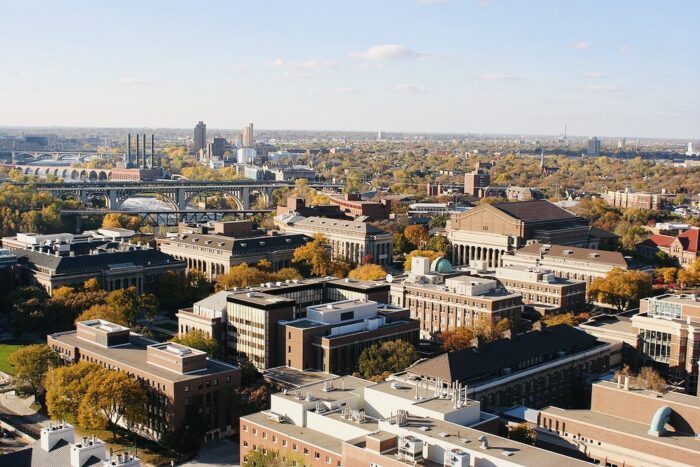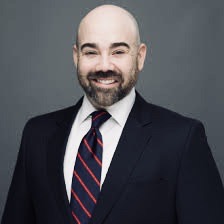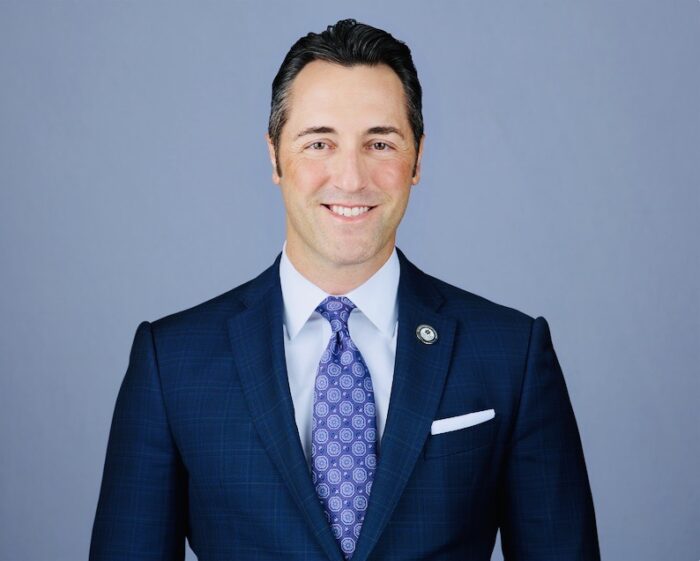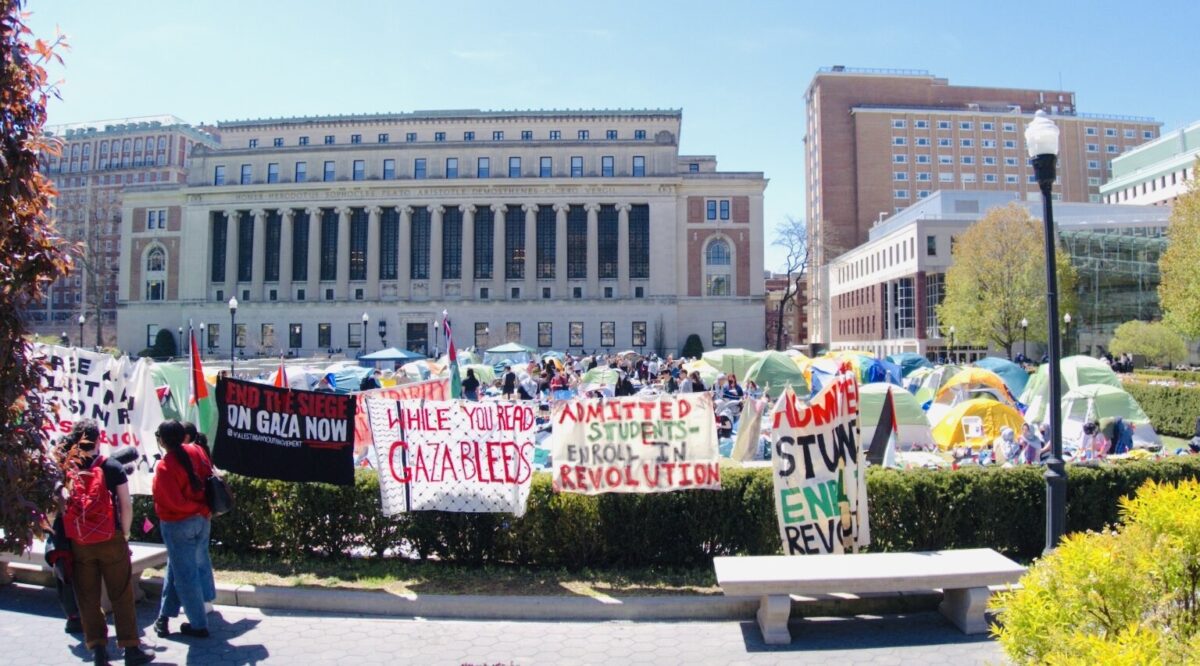The pro-Palestinian protests and encampments that sprung up at American university campuses following the October 7, 2023 massacre in Israel and the subsequent Israel-Hamas war in the Gaza Strip were bound to trigger a vigorous backlash.
Many Jewish students complained that the shrill anti-Israel rhetoric bordered on or spilled into antisemitism and created a climate of intimidation that made them feel unsafe.
They sought redress, and now they have it in the form of a series of reforms on campuses and a U.S. government order.
Universities, fearing a loss of federal funding, have taken concrete steps to address the issue, even as protesters say they were exercising their constitutional right to free speech.
Special task forces have been established. Discipline policies have been tightened. Surveillance cameras have been installed. Investigators have been hired to study protests that had led to vandalism and clashes pitting pro-Palestinian students against pro-Israel students.
And a number of universities, such as Harvard, have classified the protesters’ definition of Israel as a “racist endeavor” as a form of antisemitism.
Late last month, U.S. President Donald Trump stepped into the debate.
Having threatened to withhold federal support to universities that failed to address Jewish student concerns, he signed an executive order compelling university administrators to do more to “prosecute, remove, or otherwise hold to account the perpetrators of unlawful antisemitic harassment and violence.”
In this spirit, the Trump administration ordered the State Department and the Education Department to instruct universities to “report activities by alien students and staff that could be considered antisemitic or supportive of terrorism, so that (they) could be investigated or deported as non-citizens.”
Strangely enough, Trump’s order omitted American students, some of whom have been in the forefront of the pro-Palestinian movement.
Responding to Trump’s order, the Department of Education has launched investigations into alleged antisemitic discrimination at Columbia University, the University of California at Berkeley, Portland State University, the University of Minnesota and Northwestern University.

The previous Biden administration started this process, but the current investigation will reportedly be broader in scope.
The acting assistant secretary of education for civil rights, Craig Trainor, issued a statement in early February saying that “too many universities tolerated widespread antisemitic harassment and the illegal encampments that paralyzed campus life, driving Jewish life and religious expression underground.”

Accusing the Biden administration of doing “shamefully little to hold those institutions accountable,” he put them on notice that the U.S. government will not “stand idly by” should universities “fail to combat Jew hatred and the unlawful harassment and violence it animates.”
In fact, universities began cracking down on pro-Palestinian activism even before the latest developments.
Reacting to accusations that Columbia University has tolerated antisemitic harassment, intimidation and acts of violence, interim president Katrina Armstrong issued a statement saying that a special office to “address all reports of discrimination action and harassment” had been created, and that the capabilities of the Public Safety Office had been strengthened.

Columbia recently suspended a student who participated in a masked demonstration during which four people burst into a class on the history of modern Israel, banged drums, chanted “free Palestine” and distributed flyers that read “Crush Zionism” with a boot over the Star of David.
At Bowdoin College, Students for Justice in Palestine (SJP) faces disciplinary measures after having set up anti-Israel encampments inside the student union building. At the University of Michigan, a SJP affiliate was suspended for up to two years.
And at George Mason University, SJP leaders were prohibited from setting foot on campus for four years after they were caught vandalizing a building.
New York University, meanwhile, has updated its non-discrimination and anti-harassment policy, warning that hateful language, even couched in a code word like “Zionist,” could be deemed discriminatory. “For many Jewish people, Zionism is a part of their Jewish identity,” the university states. “Excluding Zionists from an open event, calling for the death of Zionists, and applying a ‘no Zionist’ litmus test for participation in any NYU activity” would all fall under the heading of discriminatory behavior.
Pushing back, students sympathetic to the Palestinian cause claim their freedom of speech and of assembly have been severely curtailed by these regulations.
The Secure Community Network, which coordinates security for Jewish institutions around the country and which seems to have been instrumental in convincing Trump to take “action against non-citizens who materially support terrorism and threaten Jewish Americans,” argues that existing law already permits the government to take steps against the Palestinians and their allies.
Its director, Michael Masters, believes that a student who has provided “material support” to a registered terror group, such as Hamas or Islamic State, should be punished.

“We cannot allow individuals to take advantage of America’s liberties to attack, threaten, and intimidate law-abiding American citizens in the name of terrorism,” Masters wrote in an open letter. “The law forbids it. The time has come for the United States government to stand up for our citizens and our country — and to take meaningful action to protect the people of our country by enforcing those laws.”
Trump’s order generally has earned praise in mainstream Jewish organization such as the American Jewish Committee and the Anti-Defamation League. Critics within the Jewish community contend that repressing pro-Palestinian activism will eventually be detrimental to American Jews.
As Amy Spitalnick, the director of the liberal-leaning Jewish Council for Public Affairs, said, “It is both possible and necessary to directly confront and address the crisis of antisemitism, on campus and across our communities, without abandoning the fundamental democratic values that have allowed Jews, and so many others, to thrive here.”
IfNotNow, a left-wing anti-Zionist Jewish group, contends that Trump’s plan is “fueled by anti-Palestinian racism” and serves anti-democratic ideals. “Empowering the far right endangers Jews,” IfNotNow spokesperson Eva Borgwardt said. “We call on fellow Jewish organizations and leaders who are committed to freedom of speech and safeguarding civil rights to vigorously oppose this dangerous executive order.”
It is highly doubtful whether Trump, or the mainstream Jewish community, will heed this warning. The reason is clear. Pro-Palestinian demonstrations and encampments, whether intentionally or not, have sowed a deep sense of discomfort, if not fear, among Jewish students who support Israel.
This should be tolerated no longer.
Free speech is a vital component of a democratic society, but when it is weaponized it loses much of its meaning.
